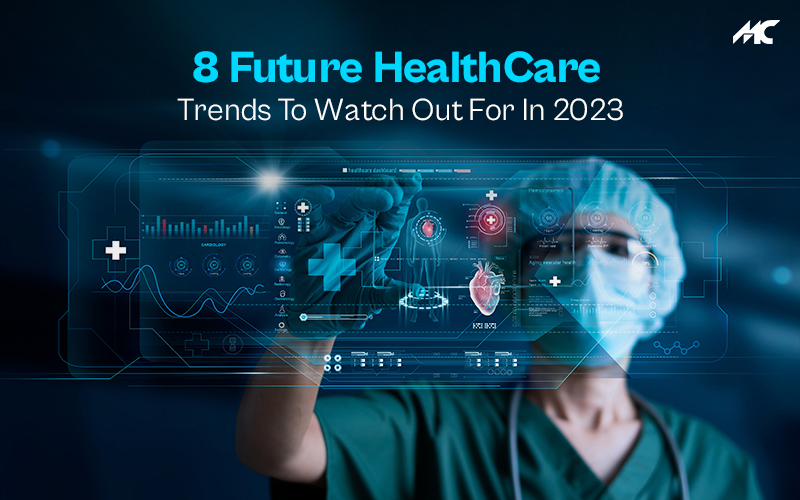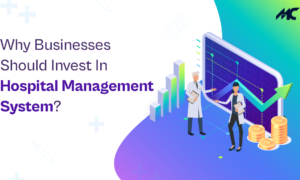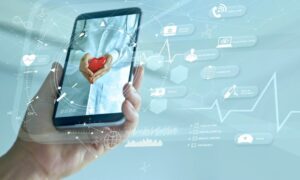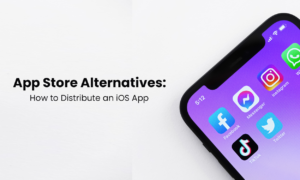Digital transformation has revolutionized almost every industry at a skyrocketed speed, and healthcare is one of them. The emergence of healthcare trends, including IoT, AI, blockchain, and virtual reality, has evolved new routes for the healthcare sector.
The advent of breathtaking technologies has entirely changed the lives of healthcare professionals and patients by providing them with automated clinical processes, smooth illness diagnosis, telemedicine, feature-rich healthcare applications, fitness trackers, wearable devices, and so on.
These latest healthcare trends enable better and faster medical diagnosis and improve overall patient healthcare. The demand for healthcare app development has skyrocketed to provide healthcare seekers with better care and a seamless medical experience with every passing day. If you have an app idea, you can join hands with any reliable and trusted healthcare app development company to start your business.
Top 8 Future Trends For 2023
The Healthcare sector is one of the most promising industries today. To know how it is transforming healthcare businesses check out the latest healthcare app development trends given below.
So, let’s get started.
1. Artificial Intelligence
AI-based systems and tools are implemented while doing radiotherapy and determining drugs. AI technology has changed the entire paradigm of the medical industry. We all have witnessed how it helped in pandemic detection, vaccine development, thermal screening, and analyzing city scans during the COVID-19 era.
AI-based algorithms help healthcare institutions to generate valuable insights from patients’ data. AI-based chatbots can easily manage multiple and distinct patients’ queries, schedule appointments, and access complete medical information. It helps streamline the healthcare processes and workflow in the healthcare system via automation.
The significant factors behind AI adoption in healthcare are:
- The need to reduce healthcare costs.
- Complex healthcare datasets.
- The requirement for improvised healthcare.
2. Big Data
At each level of the healthcare industry, an ample amount of data is collected, stored, retrieved, and analyzed. With big data analytics, healthcare institutions can get real insights into critical health problems, patients’ previous medical history, impairments in medical conditions, and many others.
According to the latest statistics, the big data market size is projected to reach 273.4 USD billion in 2026 from USD 162.6 billion in 2021, making it one of the most critical trends in the healthcare industry.
Multiple healthcare domains today are expanding greatly from big data analytics.
Data analytics applications help you in resource management, EMR management, and predictive analysis.
3. Use of IoT Wearable devices
Modern wearable devices like fitness trackers, smartwatches, and fitness applications help patients monitor their health status independently. Wearable fitness trackers facilitate patients with alert notifications related to medication, doctor appointments, BP checks, and so on. Also, they get real valuable insights from patients and leverage multiple benefits from them. The number of smartwatch users is increasing as it tracks and monitors the daily activities of a healthcare seeker.
4. Telehealth
The evolution of telemedicine has revolutionized the entire healthcare industry by reducing the communication gap between patients and doctors. With remote healthcare, patients can now make quick appointments with doctors and do faster consultations virtually. It saves both time and cost for the doctors as well as patients. Healthcare institutions can reduce their overall healthcare costs by implementing telehealth trends.
5. Virtual Reality
As per the latest statistics, the global Virtual Reality (VR) in the healthcare market is forecasted to rise from $628.0 million in 2022 to $6.20 billion by 2029, at a CAGR of 38.7%.
Virtual reality technology helps doctors perform improved surgical procedures and make treatments easier with smart VR tools. Users can get great exposure to the simulated environment of 3d images leveraging virtual healthcare mobile app development. Modern VR sets help healthcare professionals to conduct complex surgeries with minimized errors.
6. Cloud Computing
You will be surprised to know that the global healthcare cloud computing market is projected to reach $89.4 billion by 2027. The cloud-based healthcare apps help patients to retrieve, view, and save their crucial health data safely anytime and anywhere. The cloud-based apps help healthcare professionals and doctors to always keep updated about medical treatments, diagnoses, and real-time health updates.
7. Blockchain
The decentralized nature of blockchain applications is one of the emerging trends that transformed the entire healthcare sector by securing and digitalizing massive medical records.
Blockchain solutions are used to manage digital health records through decentralized infrastructure securely. The health records are stored to make precise predictions about patients’ health conditions and diagnose them better.
As per markets and markets research, the global healthcare blockchain market is predicted to reach $829.0 million by 2023, at a CAGR of 72.8%.
The decentralized blockchain solutions ensure data confidentiality, minimize compliance, regulate cost, and enhance healthcare quality services.
8. Automated and Streamlined Clinical Processes
According to research, the IoT healthcare market is forecasted to reach $188.2 billion by 2025. The emerging trends urge healthcare professionals and institutions to invest in healthcare app development to automate and streamline clinical processes. Automating and streamlining clinical procedures with the latest trends will reduce the chances of clinical errors and give precise clinical results. Not only it benefits doctors, but the medical staff also efficiently and systematically manages the massive hospital stock.
Wrapping-Up
The above-mentioned healthcare trends changed the entire healthcare paradigm and let businesses drive toward digital transformation. Today, businesses are looking forward to investing their time and money into healthcare application development services to provide seamless and hassle-free medical experiences to users.















































